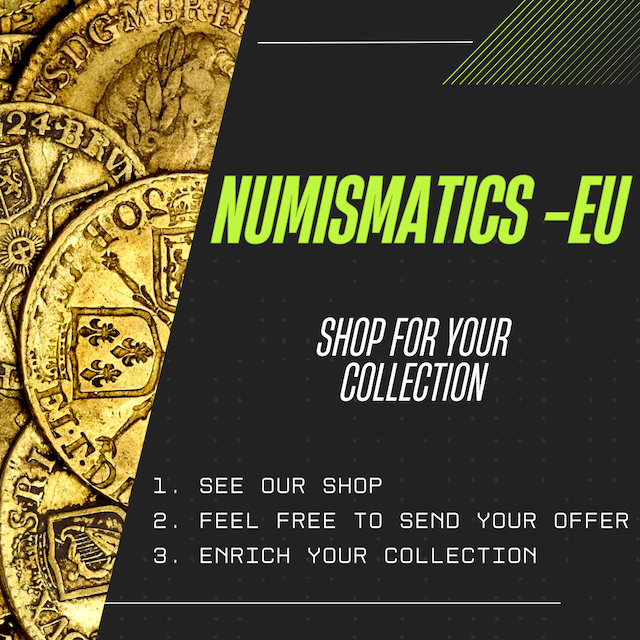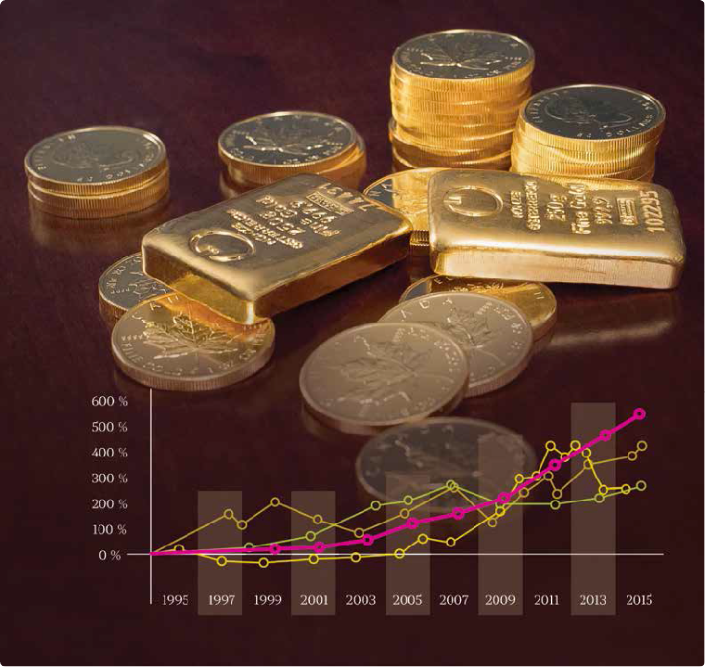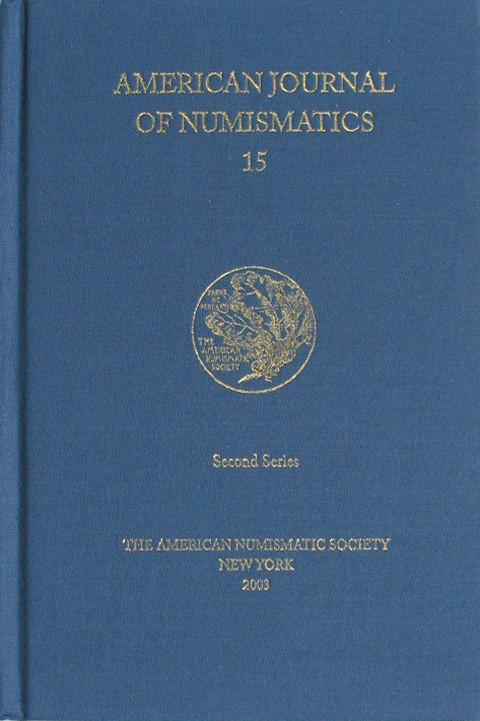To ensure that information is collected and used for analysis, it's important to consider a variety of steps and factors when using databases for numismatic research regarding central banks.
Database Selection: Choose databases that specialize in financial data and numismatics, like those provided by numismatic and academic libraries, or groups. Examples include Numista, the World Bank's databases, as well as academic journal repository repositories, such as JSTOR.
Strategie de recherche: Start by defining your goals. Are you searching for old designs for coins of a specific central bank? Or are you most interested in economic policy depicted by the coin's design or the effect a numismatic choice has on an economy? You can customize your search by adding specific keywords like "central banks coins,"" "numismatics," or specific central bank names.
Data Collection: Utilize advanced search capabilities offered by the database to locate relevant articles, reports as well as datasets. Locate historical records, policy documents, and catalogs of numismatics that detail the different types of coins and the locations of minting.
Analysis: After data has been taken, it's time to analyze them to identify patterns or trends. Analyze the strategies of various central banks to coinage. Additionally, you can compare the evolution of designs over time as well as economic factors that impact the decision-making process for coin production. There is a correlation between economic or historical events and numismatic patterns.
Cross-Referencing Validate your findings through cross-referencing data from various sources in the database. This provides a more complete understanding and minimizes the risk of relying solely on biased data sources.
Documentation - Record your findings with care, mentioning both the sources used and the methodology used. Documentation is crucial to academic or professional ones and can enhance the credibility of your research.
Stay up-to-date: Numismatic data and central bank policies change as time passes. Refresh the database often to be informed of new research and the most recent catalogues of coins.
Take these steps to make use of the power and insights of databases to conduct a thorough study about numismatics, particularly especially in relation to central banks. This lets you explore a comprehensive study of both the contemporary and historical aspects that relate to the production of coins and circulation of currency, as well as more general economic consequences. Read the best bank for more examples including coin production, proof, coin design, coin display, currency, rare banknotes, coin collecting, banknote dealer, collector, coin minting and more.

How Can I Find Out More About Numismatics In Relation To Coin Dealers Using A Database?
To conduct research on numismatics, it is essential to utilize databases that provide information on dealer listings and market trends, as well as historical transactions, and transactions in numismatics. Here's a method to conduct such research:Database Selection: Select databases that focus on dealer listings and numismatic trading. Online marketplaces for numismatics as well as dealer directories that are maintained by numismatic organizations (such the Professional Numismatists Guild), and auction house databases are just a few examples.
Define Research Focus: Specify your research objectives. You might be interested in the past and profiles of particular dealers in coins, the trends in numismatic sales or the value of coins over time. Clarify your goals for your research.
Search Strategy: Use keywords like "coin dealers," numismatic market," or "dealer directories" and, if relevant include the names of specific dealers or geographical regions. Advanced search options allow you to filter by date, dealer type (such old coins modern coin, antique coins, rare coins), and transaction type (auctions, personal sales, auctions, etc.).
Data Collection: Access comprehensive information on coin sellers like company names, locations, specialties, or years of operation as well as the history of their business. Information on dealers who have made notable contributions to numismatics and collecting or scholarly communities. Also, find out information on their participation in notable sales and auctions.
Analyze and interpret the data in order to understand the function that coin dealers play. Find out how dealers affect the market and collectible trends. They also authenticate and grade coins, and encourage numismatic knowledge through publications.
Cross-Reference: Check the validity of your study by cross-referencing data from various databases, directories of dealers, and auction records. This guarantees the accuracy and completeness of your research, and gives insight into the many roles and contributions of dealers in numismatics.
Documentation: Record your findings systematically, citing sources and noting the methods you used. Note the details of the databases you used, the search terms you used, and how each one of them connects to your research.
Stay updated: The numismatic market and dealer landscape change with the introduction of the introduction of new auctions, dealer entries and market trends. Keep up-to-date by following updates from numismatic societies, auction houses, as well as marketplaces online for the most recent developments in the numismatic industry and dealer activities.
By following these steps, you can effectively make use of databases to research the numismatics of coin dealers. This method allows for a thorough study of historical profiles of influence on markets, as well as academic contributions to the numismatic field by coin dealers. Follow the top rated design url for blog tips including slovak coins, proof coins, gold, antique banknotes, dirham, currency exchange, coin grading, banknote magazine, coin news, currency exchange and more.

How Do I Use A Numismatics Database For Research Into Collectors?
To conduct this type of research, follow this procedure: The following is a methodical approach for conducting this research:Database selection: Pick databases that specialize in the numismatic profile, numismatic associations, and collector collections. Forums for collectors online websites, sites of numismatic associations (such as the American Numismatic Association), databases specifically designed for collectors, as well as special research platforms are a few examples.
Define Research Focus: Specify your research objectives. Are you interested in learning more about the habits of collecting of certain collectors, how important collections are created, numismatic trends, or cultural and historical reasons for collecting? Find out where you wish to concentrate your research.
Utilize terms that define collectors, like "numismatic" or "collector profiles", and add particular names for collectors, if needed. You can use advanced search to sort results by date and collecting specialties, such as antique coins, paper currency or exonumia.
Data Collection: Access information on collectors. Information includes biographies collections, interests in collection, significant acquisitions and contributions to community events or the study of numismatics. Find out about the history and dispersal of notable collections. This includes auction results and catalog entries.
Analyse the data in order to determine what drives and motivates the numismatic collectors. Discover how collectors affect the market, influence trends in collecting and help in the preservation and distribution of information about numismatics through publications, exhibitions or educational projects.
Cross-Referencing - Verify your findings by using data from different databases, profiles of collectors or numismatic journals and auction archives. This will ensure accuracy and the completeness of your research. This will also give insight into the different aspects and contributions of collectors to numismatic communities.
Documentation - Document your findings in a systematic manner by noting the sources and methods employed. Note the details of the databases accessed as well as search terms used and the significance of each source to your research questions.
The numismatic landscape and the collecting interest evolve over time. Keep up to date by checking updates on forums for collectors, numismatic societies publications, and specialized databases.
Following these steps, you will be able to effectively use databases to explore numismatics in relation to collectors. This method allows for a thorough study of the motives of collectors, their interests, and the contributions of collectors in the numismatic field, and provides valuable insight into the historical, cultural, and economic dimensions of the collecting practice. Have a look at the most popular banknote printing info for more advice including banknote club, coin certification, coin release, czech coins, currency dealer, proof, design, banknote value, half-dollar, banknote forum and more.

How Can I Find Out More About Numismatics By Using A Database On Online Forums And Communities?
For numismatic research using online forums You will need to use platforms that allow collectors and fans to exchange knowledge, discuss trend and display their collections. A structured method is presented to guide you through this type of research. There are forums like CoinTalk and Reddit's R/Coins. You can also find numismatic groups on social media platforms such as Facebook and LinkedIn.
Define Research Focus: Specify your research objectives. Do you want to understand the latest trends in collecting? Or do you want to talk about particular coins as well as historical periods? Or do you get advice on authentication and grade. Make sure you know what your goals are to help direct your search.
Search Strategy: Make use of keywords that are relevant to your interest, such as "numismatic forums," "coin collecting communities," "online numismatic discussions," and include specific subjects (ancient coins, modern coins paper money) or search terms related to your research question. Use the search functionality within each platform to locate relevant threads and forums.
Data Collection: Access information from threads, discussions and posts within the online forums and communities. Learn about the strategies for collecting as well as coin identification, market trends, and personal experiences of the numismatic world. Also, discuss the historical or cultural issues that are related to coinage.
Analyze the data to gain an understanding of opinions of experiences, knowledge, and experience from the people who belong to online numismatic clubs. Examine the degree of expertise, consensus, and quality of discussions among members to judge the accuracy of the information.
Cross-Referencing. It is possible to verify your findings by comparing information in multiple forums. Comparing insights can give you the full picture of patterns, market sentiments or experts from the Numismatics community.
Documentation - Record your findings in a systematic manner, citing threads, contributors, and discussions as required. Keep track of the key findings and opinions expressed in the online forums and communities.
Engage: Take part in the discussions Ask questions and contribute to it, to gain fresh insights and to build connections within the numismatics community. Keep up-to-date by reading new threads, posting replies and releasing announcements.
These steps will help you make use of online forums or communities as well as other resources to do your research on numismatics. This approach lets you draw on the collective wisdom and expertise of a wide collection of experts and collectors, offering valuable insights and perspectives on various aspects of the coin's identification and appreciation. Have a look at the top read more here on banknote value for website examples including mint, currency society, banknote news, peso, coin album, coin society, rare coins, coin certification, banknote book, gold coins and more.

How Can I Learn More Information About Industry Consultants By Using A Numismatics Database?
Researching numismatics with regards to industry consultants involves utilizing databases that focus on consulting companies, individual consultants, industry reports and publications from organizations like numismatic society. Here is a systematic approach to conduct this type of study: Database Selection: Select databases specializing in consulting firms, reports on industry and other publications that are related to numismatics. Examples include business directories, consulting firm websites, publications of numismatic societies as well as databases that specialize in specific industries.
Define Research Focus: Specify your research objectives. Are you keen to know about consulting services available for numismatic businesses? Do you wish to learn more about the market analysis for numismatics? What's the specialties of consultants in industry and what are the trends they spot? Make sure you know what your goals are to guide your research.
Search Methodology: Use keywords such as "numismatic industry consultant", "numismatic consultancy firms" as well as "market analysis of coins" to locate relevant results. If you are able to, you can add geographical regions and specific areas of knowledge. Make use of advanced search features to filter results by dates, consultants' specialties and consulting services provided.
Data Collection: Get information about consulting firms which specialize in numismatics as well as industry consultants who offer services to numismatic businesses. Find out more about profiles of consultants, specializations (market analysis, collection management and authentication), client testimonials and reports written by the firm.
Analyze and appreciate the roles and contributions of consultants from industry in numismatics. Evaluation: Examine the methods and the expertise of consultants when providing advice to clients regarding the numismatic investment, market trends collecting strategies, as well as regulatory issues.
Cross-Referencing Check your findings by cross referencing information from various databases, consulting firms directories, numismatic publications, and industry report. This ensures completeness and accuracy in your research, providing an extensive view of the consulting industry in numismatics.
Documentation: Document your findings thoroughly, citing sources and noting methodologies used. Keep track of details on the databases accessed, search terms used, as well as the importance of each source to your research questions.
Stay Updated: Consulting services and market trends in numismatics are evolving in response to economic developments and regulatory updates. Updates from consulting firms' websites, industry reports, numismatic societies journals, and more keep you updated on the latest trends in the market and trends.
These steps can help you examine numismatics with the eyes of industry consultants. This approach enables a detailed investigation into the advice services, market analysis and strategic information offered by consultants in the numismatic industry, offering useful perspectives on investments, business operations and market dynamics in numismatics. View the top banknote value for website advice including currency catalog, banknote production, currency exchange, circulated, commemorative, coin society, banknote collection, banknote auction, rupee, coin issue and more.
